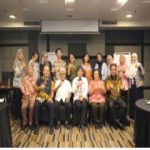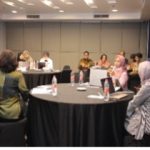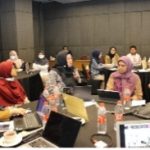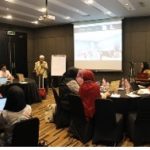Estimasi waktu baca: 3 menit
The Government of Indonesia has established the National Long-Term Development Plan (RPJPN) with the vision of “Indonesia Vision 2045,” which focuses on achieving a developed and sustainable nation. The five main goals of this vision include: increasing per capita income at the level of developed countries, reducing poverty to zero percent, reducing inequality, increasing the competitiveness of human resources, and reducing greenhouse gas emissions to net zero emissions. This vision is divided into four five-year economic transformation stages, starting from strengthening the foundation in 2025 to full realization in 2045.
Excellent and Talented Human Resources are a key element in achieving these goals, especially in terms of health, intelligence and welfare. One important factor to support excellent human resources is the availability of sufficient and quality food, especially food that is nutritious, diverse and safe. However, many low-income communities still have difficulty accessing quality food, especially those containing essential micronutrients. To address this problem, food fortification by adding micronutrients to frequently consumed foodstuffs is an important solution. Food products that are the main focus of fortification in Indonesia include rice, wheat flour, salt and palm cooking oil.
The Recommendation Strategic Policy of National Food Fortification 2025 - 2045 document developed by the Indonesian Fortification Coalition (KFI) with funding support from the Bill & Melinda Gates Foundation and assisted by Prof. Achmad Suryana focuses on the importance of food fortification in improving the micronutrient status of the Indonesian people, especially in facing various nutritional challenges in the future. Challenges facing the fortification program include global economic instability, geopolitics, and limited purchasing power. Nevertheless, food fortification remains a national priority, as stated in the RPJPN 2025-2045. In addition, various international organizations also support the strengthening of this program. One of the government's concrete steps is the establishment of the National Food Fortification Coordination Forum (FPN), which is tasked with formulating policy recommendations, advocacy, supervision, public communication, and research related to food fortification.
The expected outcome of this program is the fulfillment of essential micronutrient needs (iodine, iron, and vitamin A) for the entire Indonesian population, with special attention to the poor and children in the First 1,000 Days of Life. This success will be supported by increased coverage and adherence to fortification standards, as well as collaboration between stakeholders at the central and local levels.
The long-term targets of the FPN program include increasing the proportion of households consuming iodized salt according to SNI, wheat flour, cooking oil, and rice fortified according to standards, as well as the provision of taburia (nutritional supplement) products for children. Biofortified food is also expected to grow rapidly, with a target planting area of biofortified rice varieties reaching 700,000 hectares by 2045. Overall, the program is geared towards creating excellent and talented human resources, as part of the effort to realize Indonesia Vision 2045.
This recommendation underlines the importance of implementing food fortification as part of a grand strategy to achieve sustainable national food security and improve the quality of life of the community, especially vulnerable groups. With these strategies, it is expected that the food fortification program will run more effectively and sustainably, so as to make a significant contribution to the creation of excellent and talented human resources who are ready to bring Indonesia to achieve the great vision of Indonesia Vision 2045. Further information about this document can be obtained by contacting us via email kfi@kfindonesia.org
– Hanifah Hana Pertiwi-
































